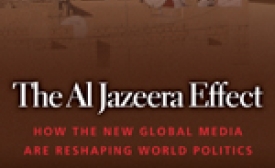tunisia
Middle East citizens have long been fearful -- but now with protesters overwhelming the streets, the regimes finally are too. Yet as people power has swept autocrats out of Tunis and Cairo, Middle Eastern regimes aren't the only ones getting nervous. Beijing is also paying rapt attention.

CPD Director Philip Seib interviewed by Radio France International Espanol about Al Jazeera's coverage of mideast uprisings.
The European Union has frozen the assets of ousted Tunisian President Zine al-Abidine Ben Ali and his wife. The sanctions were approved by EU foreign ministers, after a request from Tunisia's new interim government.
Like many Azerbaijanis, Elnura Jivazade, a resident of the Baku suburb of Khirdalan, is watching Egypt’s political upheaval closely. But unlike most Azerbaijanis, Jivazade sees Egyptian President Hosni Mubarak each morning. His statue, a symbol of Azerbaijani-Egyptian friendship, stands in a Khirdalan park that she passes each weekday on her way to work.
Secretary of State Hillary Clinton and Senate Foreign Relations Committee chairman John Kerry (D-MA) both said independently today that the Egyptian government should cease the use of violence against protesters but only Kerry called for free and fair elections this year.
The turmoil in Egypt and Tunisia provides a stark illustration of how the digital revolution can empower individuals on a grand scale — but some members of the world's elite at Davos say it also can stifle diplomacy and give radicals the loudest voice.
There has been much argument about what technologies and international factors played a role in Tunisia's revolution. We covered Facebook's role, which I would summarize as significant but not determinative.
The top U.S. diplomat for the Arab world gave Washington's firm endorsement of the uprising that ousted Tunisia's longtime ruler, even as a crisis over the North African country's transitional government continued to simmer.







